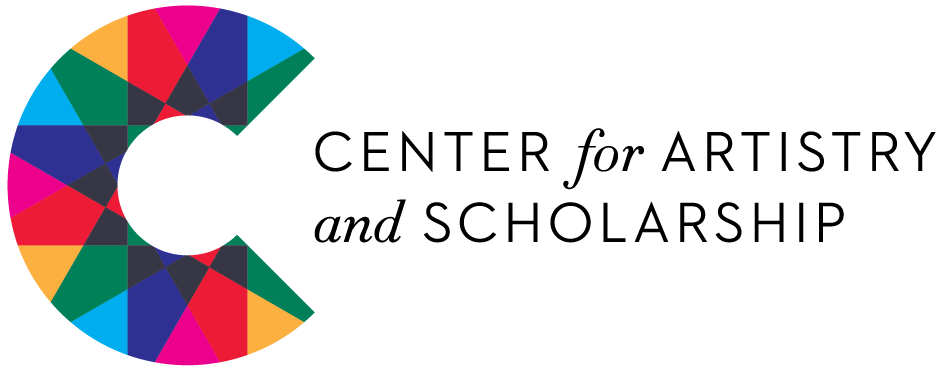"Everyone Can go to College"
We are sharing reflections on and excerpts from Center for Artistry and Scholarship’s Executive Director Linda Nathan’s new book, When Grit Isn’t Enough, published October 2017 by Beacon Press. In the book, Linda investigates assumptions that inform our ideas about education today, revealing how these beliefs mask systemic inequity. Drawing from her experiences as the founding headmaster of Boston Arts Academy (BAA) and more than 80 interviews with alumni that she conducted after she stepped down, When Grit Isn't Enough argues that it's time for policy-makers and educators to face these uncomfortable issues. It also explores how we need room for creativity and student-centered teaching and learning to better serve all students, increase college retention rates, and develop alternatives to college that do not disadvantage students on the basis of race or income.
Success is liking yourself, liking what you do, and liking how you do it. – Maya Angelou.
In Chapter Four of When Grit Isn’t Enough, Linda Nathan writes,
Photo by J.o.h.n. Walker on Visual Hunt
As I began researching this book, listening to and learning from my alumni, I started to question my own assumptions and convictions. Many former students talked about how they wished for more guidance about career preparation that might not require a college degree. Without using the actual words, they talked about their desire for more specific career and vocational education. “Do you need a college degree to be an auto mechanic, a carpenter, a stage hand?” students would ask. “How do you enter those jobs that have a union?” “Couldn’t I make good money as a barber or a baker?” Others talked about how more permission and encouragement from teachers and administrators to work for a couple of years and then attend college might have allowed them to approach their education with a more mature outlook.
Everyone can go to college, but does everyone want to? When I was in high school, my school partnered with a career and technical school called BOCES. This partnership allowed students to spend half of the day at our high school and the other half at BOCES completing coursework and training in a specified field. The subjects ranged from culinary arts to aviation, to nursing and more. Students wanted to go to BOCES. It did not matter if you were at the top of the class, enrolled in all AP courses, or barely making the grade. The program was intriguing. Furthermore, the opportunity was not presented in an “either or” kind of way. Certification programs are not the end. Most students did not think, “I’m going to BOCES to become a licensed tradesperson, so I don’t have to go to college.” This may have been the thoughts of a few, but for most, we perceived BOCES as an introduction into a career that could very well require some college along the way. For example, a student interested in dentistry could graduate high school a certified dental assistant, creating the possibility of having a job and gaining experience, while being in school to become an actual dentist. BOCES was also presented in a way that made us, think, “why not add this additional skill to my resume that can set me apart? Why not have a backup plan should I need it?”
My high school had a very high graduation rate and students graduated with a plan - whether that be enrolling in a community college, a four-year college, or commencing straight into work. The truth of the matter is that a great high school, a really great high school, provides students with options. Great high schools give students all of the resources they need to make an informed decision about their steps post-graduation. College is a great experience that can open many doors, but it is by no means the only indicator of success. Should everyone have the option to attend college? Yes. Should people at least give it a try? Sure. Sometimes you do not know something is for you until you try it.
The world’s perception is that not wanting to go to college is “not okay.” In many instances, students are pipelined into college, not knowing their other options. Getting students to college is not necessarily a sign of success. What happens when the students get to college but do not make it through college? The goal should be to graduate students resourced and ready, educated and enthusiastic, planned and prepared, informed and inspired, motivated and moving in the best direction for them. Going back to the quotation from Linda, participating in a career and technical education program can allow graduates to approach their education with a more mature outlook, saving themselves time and money.
The reality is that while everyone can go to college, everyone does not have to. This is not said to discourage people from going to college or to combat schools with missions that aim to get scholars to and through college. I one hundred percent support President Obama’s plan to provide the necessary supports to get students to complete college by 2020. However, college is not the only way, and if a student has another plan for their success, they should feel empowered to explore it. As a classroom teacher, I believed that college was the answer. I would have my elementary students sing and recite affirmations about gearing up for college. My classroom door was adorned with signage that boasted the class’s college graduation year. However, as I progressed in my career, I had meta-moments where I would ask myself, “Am I really teaching my students to live and lead their best life if I am only informing them about college?” I wanted my students who would decide to go to college to go on their own will and not just because that is all they were ever told. Should they go, I wanted them to be there for them. Should they not go, I wanted them to have a promising plan. I propose that instead of saying, “Everyone can go to college”, we simply say, “Everyone can live the life they have imagined.”
Tamesha Webb is currently a student at the Harvard Graduate School of Education. She is studying to receive her second masters in School Leadership. The focus of her work is school development; specifically concentrating on the experience of girls in school. Tamesha is a proud New Yorker.

